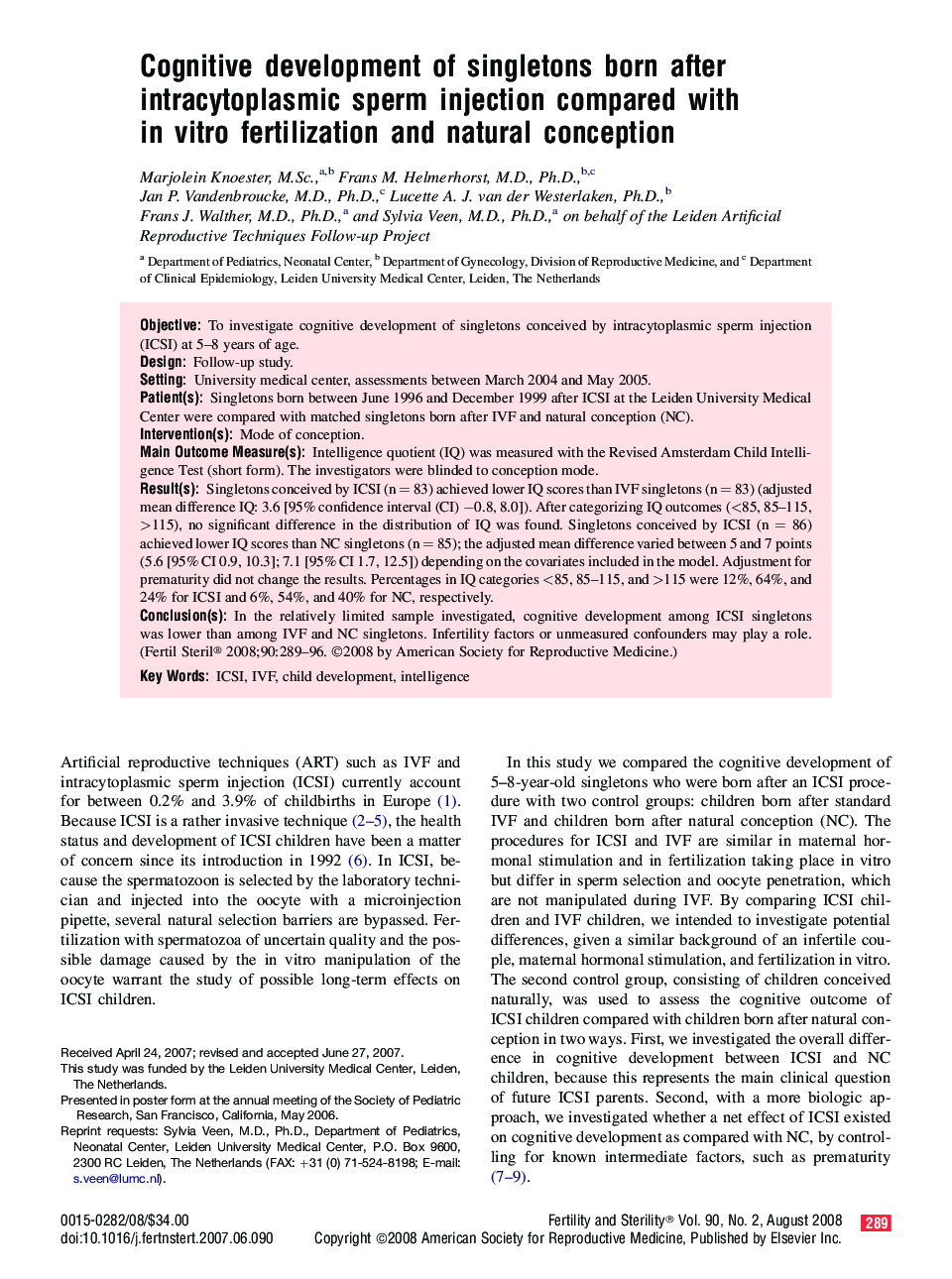| Article ID | Journal | Published Year | Pages | File Type |
|---|---|---|---|---|
| 3934905 | Fertility and Sterility | 2008 | 8 Pages |
ObjectiveTo investigate cognitive development of singletons conceived by intracytoplasmic sperm injection (ICSI) at 5–8 years of age.DesignFollow-up study.SettingUniversity medical center, assessments between March 2004 and May 2005.Patient(s)Singletons born between June 1996 and December 1999 after ICSI at the Leiden University Medical Center were compared with matched singletons born after IVF and natural conception (NC).Intervention(s)Mode of conception.Main Outcome Measure(s)Intelligence quotient (IQ) was measured with the Revised Amsterdam Child Intelligence Test (short form). The investigators were blinded to conception mode.Result(s)Singletons conceived by ICSI (n = 83) achieved lower IQ scores than IVF singletons (n = 83) (adjusted mean difference IQ: 3.6 [95% confidence interval (CI) −0.8, 8.0]). After categorizing IQ outcomes (<85, 85–115, >115), no significant difference in the distribution of IQ was found. Singletons conceived by ICSI (n = 86) achieved lower IQ scores than NC singletons (n = 85); the adjusted mean difference varied between 5 and 7 points (5.6 [95% CI 0.9, 10.3]; 7.1 [95% CI 1.7, 12.5]) depending on the covariates included in the model. Adjustment for prematurity did not change the results. Percentages in IQ categories <85, 85–115, and >115 were 12%, 64%, and 24% for ICSI and 6%, 54%, and 40% for NC, respectively.Conclusion(s)In the relatively limited sample investigated, cognitive development among ICSI singletons was lower than among IVF and NC singletons. Infertility factors or unmeasured confounders may play a role.
